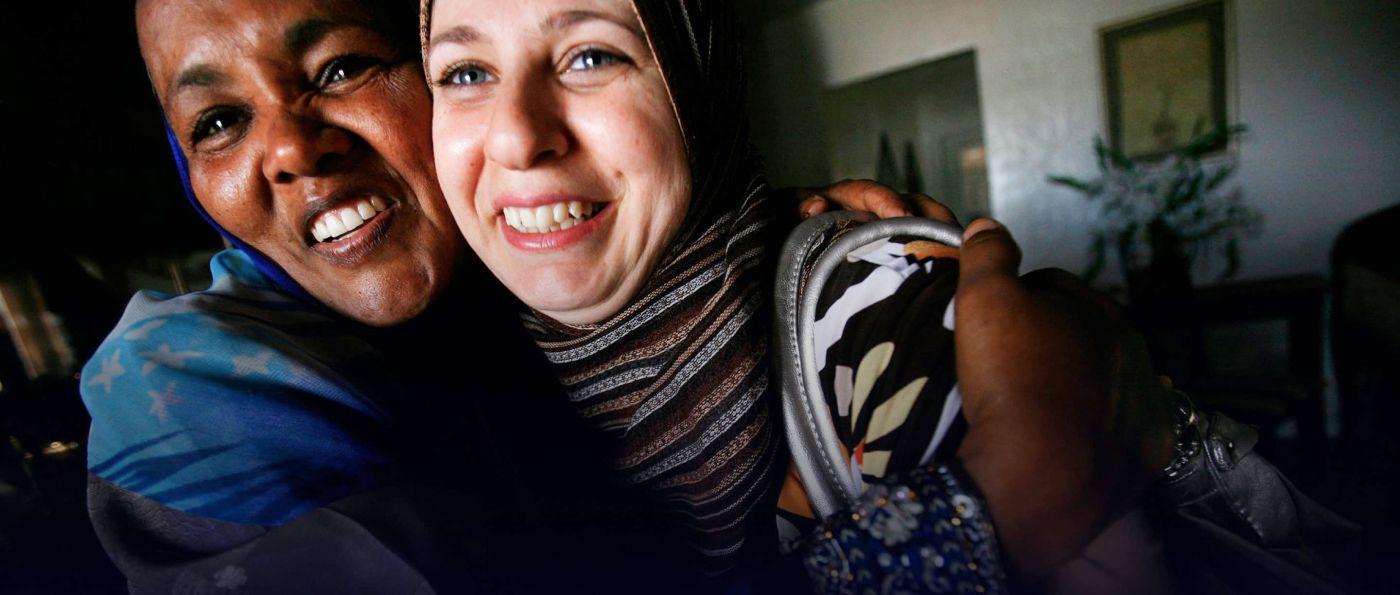Latest Changes to Humanitarian Parole Programs, including Private Sponsorship Programs


Alert
On May 30, the Supreme Court granted the Trump administration’s emergency request to terminate humanitarian parole status for individuals who arrived in the U.S. through the Processes for Cubans, Haitians, Nicaraguans, and Venezuelans (CHNV) sponsorship program.
Latest updates
Parole status terminated for CHNV newcomers
- In March 2025, the Department of Homeland Security (DHS) announced that it will terminate the humanitarian parole status for individuals who arrived in the United States through the CHNV sponsorship program. This announcement was contested in federal court in the case _Svitlana Doe v. Noem _
- On May 30, 2025, the Supreme Court granted the Trump administration’s emergency request to terminate humanitarian parole status for individuals who arrived in the U.S. through the CHNV sponsorship program. Learn more.
- The ruling means humanitarian parole status for people sponsored through the CHNV program is terminated and the government can begin deportation proceedings, unless they have secured protection from deportation through another legal status, such as a pending asylum application.
Applying for alternative legal statuses
On May 28, a federal judge issued a ruling ordering the Department of Homeland Security (DHS) to restart processing immigration applications for people in the U.S. through humanitarian parole programs like U4U and CHNV. This means that these individuals can once again submit immigration applications for statuses such as asylum. Applications that were already submitted can also move forward.
It’s not clear how long this order will last or if the government will comply with it. Immigration applications have been on hold since a DHS memo on Feb. 14 paused processing for people in the U4U and CHNV programs, including work permits and asylum. People with pending applications can check their status through their myUSCIS account and consult with their legal counsel on the status of their application.
We strongly recommend that newcomers apply for asylum or another permanent status if they qualify. Sponsors can help by connecting them with legal services. Check out our guide to alternative legal options for support.
Message sent in error to some Ukrainians who arrived through U4U
As of April 4, 2025, news outlets are reporting that some individuals sponsored through Uniting for Ukraine (U4U) received an email yesterday from the U.S. Customs and Border Protection (CBP) at the Department of Homeland Security (DHS) notifying them that their parole status will terminate in seven days and directing them to leave the country immediately. DHS stated that this message was sent in error to some Ukrainians who arrived through U4U and that the department has sent retraction notices. It is unclear if DHS plans to issue this same notice at a later date or to other populations. We are following the matter closely and will share updates as they become available.
Media reports about parole status revocation for U4U newcomers
The termination order affecting CHNV parole does not apply to the Uniting for Ukraine (U4U) humanitarian parole program. However, there have been news reports suggesting that the U.S. government may announce the termination of existing humanitarian parole for newcomers who entered through U4U soon after the termination of CHNV parole.
Visit our policy updates page for expert guidance, FAQs, and other resources, and subscribe to receive emails with the latest updates.
Background on the use of humanitarian parole in the United States
- Humanitarian parole is a temporary immigration status that allows individuals facing urgent humanitarian crises to enter the United States legally.
- Humanitarian parole is a legal authority that has been used for nearly a century by Republican and Democratic presidents alike to respond to humanitarian crises. For example, President Eisenhower admitted nearly 30,000 people from Hungary following the collapse of the anti-Communist revolution. From the 1960s–1990s, presidents of both parties used humanitarian parole to establish programs that helped hundreds of thousands people fleeing persecution from Cuba, Vietnam, Indochina, and other areas arrive safely in the United States. And most recently, it has been used to help Afghans after the takeover of their country by the Taliban in 2021; Ukrainians after the Russian invasion in 2022; as well as Venezuelans, Cubans, Nicaraguans fleeing persecution from authoritarian leaders and Haitians seeking safety as their government collapsed.
- Sponsors welcomed them—using their own private resources to provide housing and meet immediate essential needs, help newcomers find employment and enroll kids in school, and extend a helping hand as friends and neighbors to newcomers rebuilding their lives in the United States. These newcomers have contributed to local economies and businesses, becoming our new neighbors, colleagues, and, for many of us, members of our extended family.
- Both the sponsors and newcomers passed thorough background checks, security vetting, and financial reviews carried out by the U.S. government before the newcomers are approved to travel to the United States.
- Individuals with humanitarian parole seeking to remain in the United States and those concerned for their safety can consult this guide to alternative legal options for humanitarian parolees. Individuals with questions or concerns about changes to humanitarian parole can contact their federal and local representatives using this guide.
FAQ
What’s the latest on CHNV?
On May 30, 2025, the Supreme Court allowed the Trump administration to end the CHNV humanitarian parole program and terminate legal status for CHNV newcomers. This means CHNV parole is no longer valid, and the government can start deportation unless someone secured protection from deportation through another legal status, such as a pending asylum application.
If a newcomer you know is impacted by this decision:
- Get legal help immediately: All individuals with a primary status of humanitarian parole should consult an immigration attorney immediately. Find an immigration attorney through the American Immigration Lawyers’ Association search tool.
- Consult our parole termination resources hub, which includes resources to understand newcomers’ rights and possible next steps.
Sponsors can consult our guide to alternative legal options for humanitarian parolees to seek professional legal counsel.
What’s the latest on U4U?
As of Jan. 28, 2025, the U.S. government has paused the Uniting for Ukraine (U4U) program. No new U4U applications are being accepted, pending cases won’t be processed, and no new travel authorizations are being issued.
The May 30 Supreme Court ruling, which ended CHNV humanitarian parole, does not apply to U4U beneficiaries. However, there are media reports that the government may also end humanitarian parole for U4U in the future.
Visit our humanitarian parole explainer page for more details and resources.
If you are a sponsor, check out our guide to alternative legal options for parolees and get legal advice from an immigration expert.
What happens to my pending application or approved sponsorship if the newcomer hasn’t arrived yet?
With the pause of the U4U program and the end of the CHNV program, pending applications or approved sponsorships for newcomers that have not arrived will not be processed.
The programs are not accepting new applications, pending applications will not be processed, and no new travel authorizations are being issued. We are closely monitoring official updates and will share further information as it becomes available.
If you have questions about a specific case, you can ask your congressional representatives to follow up directly with USCIS on your behalf. Use our guide for information on how.
How will CHNV newcomers know if their parole status has been terminated?
On March 25, the Department of Homeland Security (DHS) announced the decision to terminate the humanitarian parole status for people sponsored through the CHNV program. This public notice serves as notice of the termination of parole status for those who arrived through CHNV and if their primary status is humanitarian parole. DHS also provided individual notices to each parolee through their USCIS account.
Termination of parole was supposed to take effect on April 24, 2025. However, a federal judge temporarily halted termination while reviewing the legality of DHS’s termination decision. On May 30, the Supreme Court lifted the temporary halt, which means that the Trump Administration's decision to end humanitarian parole for people sponsored through the CHNV program can move forward and the government can begin deportation proceedings. Click here to learn more about humanitarian parole sponsorship.
How will CHNV newcomers know if they can stay in the U.S.?
All individuals who arrived in the U.S. through CHNV should seek advice from an immigration attorney immediately to determine if they already have alternative legal status, or, if not, what viable options remain for them.
Check your USCIS online account regularly for updates.
Find an immigration attorney through the American Immigration Lawyers Association search tool.
How does the termination of parole status for CHNV beneficiaries affect their employment authorization?
The May 30 Supreme Court ruling allowed the government to end CHNV humanitarian parole immediately. This means employment authorization based on CHNV parole has ended.
If the individual has work authorization based on a different legal status (such as asylum or TPS), it will not be affected.

